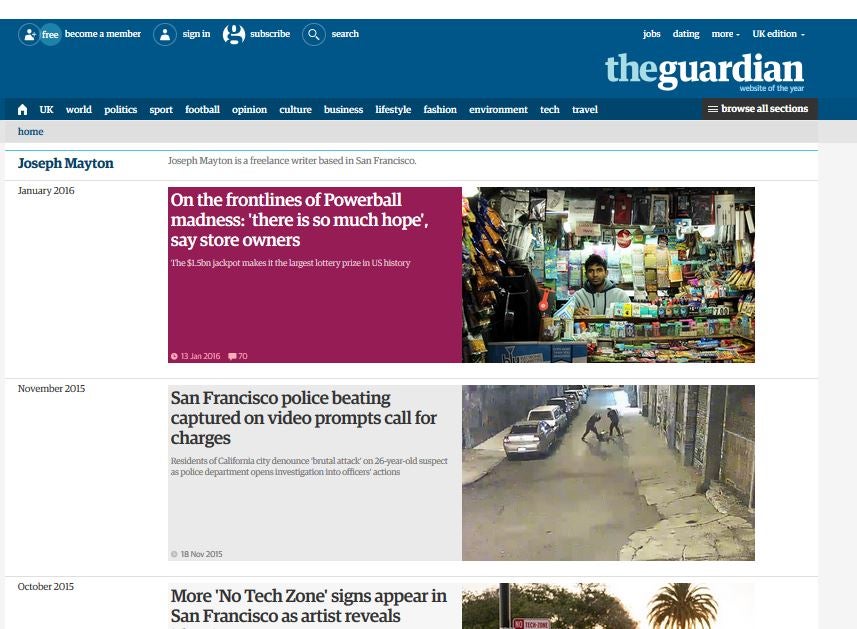
The Guardian has removed 13 articles from its website after finding that one of its journalists was guilty of “fabrication”.
Freelance Joseph Mayton has written more than 60 articles for The Guardian, writing from Egypt in 2009 and then – from May 2015 – from California.
The Guardian launched an investigation “when sources claimed that they had not spoken with the writer of the piece they were quoted in”.
Stories covered by Mayton range from whale deaths to wildfire issues related to marijuana farms.
The Guardian is not a member of the Independent Press Standards Organisation, which upholds press standards in the UK. But as this appears to have been a US-based issued, it may not have come under the IPSO remit.
The Guardian instead has a readers’ editor, and an external review panel, to deal with complaints.
Guardian US editor Lee Glendenning writes that the Mayton issue was dealt with by hiring an independent fact checker who, after carrying out 50 interviews, “found articles that contained likely or confirmed fabrication, including stories about two events that organizers said he didn’t attend”.
She said: “Dozens of sources could not be found – either they had no online presence or they were anonymous and could not be substantiated – and several people quoted in Mayton’s articles either denied speaking with him or giving the quotes attributed to them.”
She said that Mayton was “was unable or unwilling to provide information on most sources”.
She added: “In light of the extent of the fabrication and the uncertainty surrounding many of the articles, we are removing 12 of the news stories, and one opinion piece from the Guardian website. In the articles that remain, quotes and information that could not be verified have been removed, and we have published footnotes on each article page to outline this. There were other stories which proved accurate, with no corrections needed, and have been left as is.
She said The Guardian is to review the way it deals with freelance contributors as a result of the Mayton episode:
“First, we need to know more about the freelancers we work with before they start writing for us regularly. These are often people we haven’t met, but we go on to place an inherent degree of trust that the work they are filing to us is true. We are currently reviewing our processes in order to improve due diligence in relation to regular contributors.
“Second, we need to take a closer look at occasions where individuals are not named in a story for no strong reason. We need to question the use of anonymous sourcing in any story; a policy we hold, but have not enforced strictly enough. There are occasions where it is of course necessary, such as in sensitive national security reporting, but these stories were not among them.
“We want to apologise to those people whose words were misrepresented or falsified. We also want to say sorry to you, our readers, for the errors that have been made here, and hope that it has not compromised the trust you place in The Guardian. We assure you we will do better.”
Email pged@pressgazette.co.uk to point out mistakes, provide story tips or send in a letter for publication on our "Letters Page" blog

